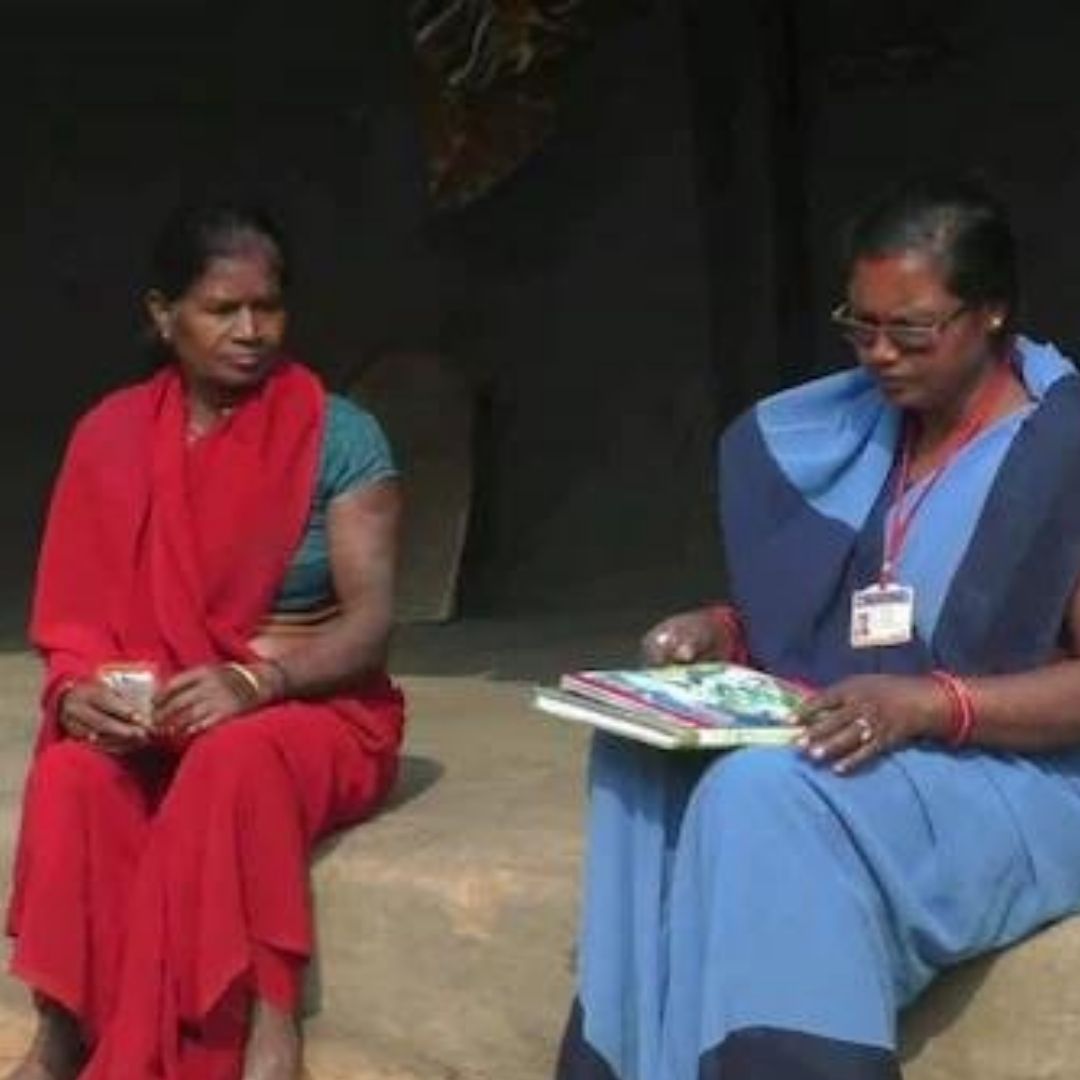
Image Credits: News 18
Fighting All Odds, Odisha's Tribal ASHA Worker Makes It To Forbes India's Powerful Women List
Writer: Akanksha Saxena
I am a budding journalist who loves to write stories that have the ability to connect with people.
Odisha, 28 Nov 2021 6:03 AM GMT
Editor : Ankita Singh |
A literature lover who likes delving deeper into a wide range of societal issues and expresses her opinions about the same. Keeps looking for best-read recommendations while enjoying her coffee and tea.
Creatives : Akanksha Saxena
I am a budding journalist who loves to write stories that have the ability to connect with people.
45-year-old Matilda Kullu had to battle rampant casteism and untouchability in Odisha’s Sundargarh district to become a social health worker, working tirelessly during COVID-19 by doing door-to-door visits in the village.
A tribal woman from Odisha named Matilda Kullu found herself in Forbes India's W-Power List 2021. The list honours Indian women coming from different sections of society and how they battled all odds to reach where they are today.
The 45-year-old hailing from the state's Sundargarh's district, Kullu is an Accredited Social Health Activist (ASHA) worker who makes healthcare accessible to the marginalised communities. From doing door-to-door visits to educating the public about health issues, she has played a significant role during the COVID-19 pandemic in the country.
Battled Casteism And Untouchability
Matilda Kullu has devoted herself to providing healthcare facilities to vulnerable groups for 15 years now. The Baragaon tehsil, where the ASHA worker comes from, was notorious for indulging in black magic. The villagers gave witchcraft preference over consulting a local doctor. Kullu was ridiculed for trying to convince the locals to go down the medical route.
On top of that, rampant casteism and untouchability made her work extremely difficult. Matilda Kullu belongs to a Scheduled Tribe. She told Forbes India, "It was terrible some years ago; things are much better now. People have become more understanding and less superstitious. The old generation still practices untouchability, but that does not bother me anymore.
"The 45-year-old effortlessly juggles her household chores with her work. Her day starts at 5 am during which she did door-to-door visits to check on people. Her work also involves taking care of pregnant women by performing deliveries and pre and postnatal checkups. Also, Kullu administers various kinds of vaccines and promotes awareness about sanitation, hygiene and other healthcare issues that plague the rural areas.
Kullu's job became all the more critical during the pandemic. With India under lockdown, ASHA workers had to work additional hours to raise awareness about COVID-19 and continue doing health checkups. According to Hindustan Times, Kullu visited over 50-60 houses per day to check on locals suspected of contracting the virus. "Every day, I would get out of home and visit families looking for COVID suspects and then inform the local primary health centre," Kullu said.
For her exemplary work, Matilda Kullu was given the award of COVID-19 Warrior. Her efforts were instrumental in bridging the gap between vulnerable groups and healthcare facilities. However, many like her have gone underappreciated and unacknowledged. "Thankfully, the people in my village listened to me and got vaccinated. A lot of them are even fully vaccinated. When I spoke to workers in other villages, they tell me they face a lot of problems in convincing people to get the jab," adds Kullu.
Life Of ASHA Worker
A majority of ASHA workers came in direct contact with virus-ridden people. Forbes India states that many of them were not given the necessary protection gear (PPE kit, masks, sanitisers, gloves, etc.), making them highly vulnerable. Matilda Kullu caught the virus in the deadly second wave, but she resumed work two weeks after recovering.
The meagre pay does not help their case as well. Kullu explains, "I love my work, but the pay is very low. It is even disappointing because we put in so much effort to look after people yet have to fight to get our incentives on time. Recently, we had to protest to get our incentives, which was pending for more than two years." This is the case with many other workers around the country who are struggling to make ends meet.
Indeed, Matilda Kullu's efforts in this regard have been beyond exceptional. However, the country and the government have to work towards giving them their due. ASHA workers have worked extremely hard in fighting COVID-19 in rural India. They were often subjected to violence while they did their jobs. Therefore, the workers should be given due recognition for their efforts and provide for them.
Also Read: Clean Water & Better Health For Villagers: A Solution For Overworked Women In Odisha
 All section
All section














